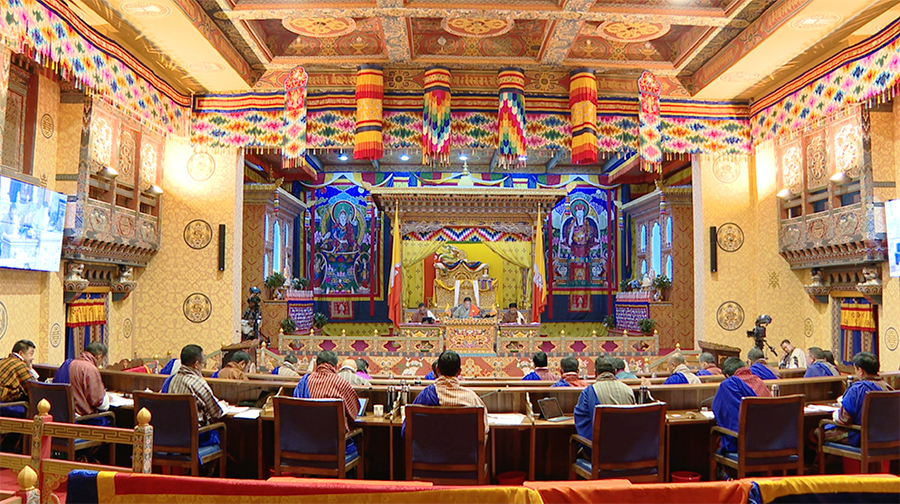 The National Council today adopted the recommendation to make the Rural Life Insurance Scheme more inclusive by implementing a differentiated subsidy approach. Under this, financially capable urban residents will receive less support under the scheme, while economically vulnerable rural residents will get more financial support. Currently, the scheme provides coverage and premium subsidies to all eligible population in both rural and urban areas irrespective of the income level.
The National Council today adopted the recommendation to make the Rural Life Insurance Scheme more inclusive by implementing a differentiated subsidy approach. Under this, financially capable urban residents will receive less support under the scheme, while economically vulnerable rural residents will get more financial support. Currently, the scheme provides coverage and premium subsidies to all eligible population in both rural and urban areas irrespective of the income level.
During the session, several members of Parliament called for the recommendation to be removed. They argued that it could create confusion for service providers, add an administrative burden, and potentially lead to injustices and corruption during its implementation.
“The recommendation requires a distinction between urban and rural residents, which will create confusion in the future. It will also pose challenges for the Royal Insurance Corporation of Bhutan and Bhutan Insurance Limited. For example, a person might claim to be an urban resident today and move to a rural area tomorrow. How will such cases be handled?” questioned Ugyen Tshering, Paro MP.
“When we talk about reducing subsidies for urban residents, it assumes they have a good source of income. Likewise, increasing subsidies for rural residents assumes they are economically weak. However, this is not always the case. There are urban poor who struggle financially, and rural elites who are wealthier than some urban residents. My concern is how do we accurately differentiate between these groups?” asked Tshering Tshomo, Zhemgang MP.
“There are rural residents who are temporarily living in urban areas, and there may be urban residents who cannot afford the increased premium. If subsidies are differentiated in this way, it could lead to many complications. It will not only create challenges for management but may also cause issues within the community,” said Dago Tsheringla, Haa MP.
In response, the committee argued that the recommendation would ultimately benefit the people, as the head of the family, who is usually a rural resident, often bears the burden of paying the premium for the entire household. In addition, the committee stated that the recommendation was put forward by the people themselves.
“In families with 30 to 40 members, the head of the household often struggles to manage the payments. Many have shared that their family members are unaware of the Rural Life Insurance Scheme, leaving the head of the family to shoulder the responsibility alone,” said Kencho Tshering, member, Good Governance Committee, NC.
The Good Governance Committee assured that there would be no confusion in differentiating between groups, as the National Statistics Bureau would be responsible for handling the classification.
“The Rural Life Insurance Scheme was introduced in 1982, and it has now been 43 years since its inception. In our view, the country has developed significantly over this period, and people’s incomes have also improved. As we move forward, the importance of public contribution and shared responsibility with the government has been emphasised in the past as well. Therefore, we have decided to implement the differentiated subsidy approach,” said Phuntsho Rabten, Committee Member, Good Governance Committee, National Council.
The review report on the Rural Life Insurance Scheme, along with the final recommendations, will be adopted next week.
Currently, the scheme offers a sum assured of Nu 30,000 with an annual premium of Nu 195, of which Nu 108 is paid by the government.
Tashi Dekar
Edited by Sonam Pem









